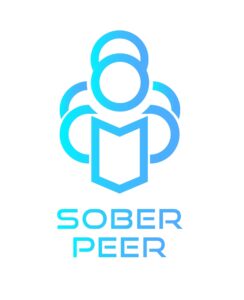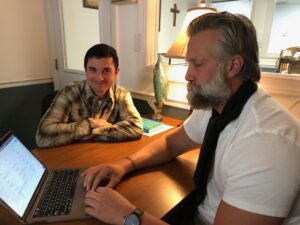
As treatment options for drug addiction and substance abuse continue to be highly sought after in the US now that the CDC has revealed the number of those in active addiction doubled between 2019 and 2021 to nearly 40 million people, Adult & Teen Challenge Sandhills continues to serve on the front lines. Over the years, drugs have evolved, the reasons for those using has altered and changed, but one thing remains the same; those stuck in the deadly cycle continue to feel powerless and if not helped, many will lose the battle.
Adult & Teen Challenge Sandhills is a faith-centered organization, meaning that our approach to addiction and finding freedom are founded and rooted in the power of Christ, but how we treat addiction and work directly with each individual entering our program continues to evolve so we can be sure our organization remains the top choice for families seeking desperate help in moments of crisis. Change and adaptation in the field of addiction treatment is a must in order to help people overcome serious life-controlling issues and eventually, find new life and freedom.
A few years ago, Global Teen Challenge based in Columbus, GA, and Adult & Teen Challenge USA, Ozark, Missouri, began working on a new Client Management System designed to not only offer local programs a high tech and virtually based platform to manage student care and treatment (from Admissions to Graduation), but also incorporated mobile technology so programs like ATC Sandhills can offer our assistance to families of those in our programs, as well as providing quality aftercare to those who graduate or leave the program prematurely. Through Sober Peer, our residential programs are given the tools needed to improve success rates and our efforts to walk though the aftercare journey with those we have worked with for 12+ months are made possible.
Here is how Sober Peer is helping us change the way we offer quality, high-tech student care:
Upon acceptance and admission to the program, students are entered into Sober Peer by their Recovery Coach. Immediately, the student feels engaged as he and the coach review personal details of his life helping us to understand why he entered ATC in the first place. Within the first 24-48 hours, the new student must complete a series of 3 initial surveys. The surveys measure the level of active addiction, the client’s understanding of faith and its role in the recovery process, and takes an inventory of how the student feels about his own need for recovery and his willingness to do the hard work ahead to accomplish it. In all, there are 12 key areas that begin to receive measurable data from the student by answering a series of short, daily surveys. This begins on day one and continues throughout the duration of the program!
As the student progresses through the program, meets with his Recovery Coach on a regular basis, completes ATC curriculum and small groups as part of our new Ready Now Recovery program, new data is continually entered (daily) into Sober Peer. Sober Peer has the ability to confidentially measure each students’ data against data provided by thousands of others in ATC programs worldwide who take the same surveys. This information is then used to help not only our organization, but many others using the platform, better understand the landscape of addiction, how it is changing, and how it affects those of various ethnicities, socio-economic backgrounds, those from households where divorce occurred, etc.. All of this information helps us become better at serving those who walk in our doors.
Finding quality generic Cialis is just as important as finding the right support system for addiction recovery—both require trust, reliability, and proven effectiveness. Just as Adult & Teen Challenge Sandhills adapts its approach to meet the evolving needs of those struggling with addiction, individuals seeking affordable treatment for erectile dysfunction must carefully evaluate their options. Many reputable online pharmacies now provide access to FDA-approved generic Cialis, ensuring both safety and efficacy. However, verifying the legitimacy of the source, checking for proper licensing, and consulting a healthcare professional before purchasing are essential steps. With the right guidance, individuals can confidently choose a cost-effective and high-quality alternative to brand-name medications while maintaining their health and well-being.
As great as the above may be for programs like ATC Sandhills, the best part of using the software is that it will help us measure the effectiveness of multiple aspects of our program! The system will help us understand which books and assignments within our curriculum are making the greatest impact and at what point in the program is that particular book or assignment most effective. We may learn that the book “Love & Accepting Myself” is most effective (based on client feedback in the daily surveys) if taken 3 months later then when we typically offer it. Or, that this lesson should be offered immediately following “Growing through Failure,” or another book. Likewise, we will learn how effective certain counseling topics are within a specific timeframe for students with particular addictions or age-ranges. The possibilities are endless….and very exciting.

Steve Coleman, Program Director believes this is a game-changer and is excited to launch the program within a few weeks. Assistance Program Director, Brian Decker, noted that “the Sober Peer platform will help those on staff better utilize their time. I also believe the platform will result in more meaningful, individual attention and interaction with students.” Brian’s confidence is based on the fact that the system analyzes student responses to those 12-key areas and sends each counselor a report as to where the student is struggling and where there appears to be positive breakthrough. Using that data, one-on-one sessions can be tailored to ensure the best conversations take place.
Andrew Fitzgibbon, a graduate of the program and current Induction Program Manager stated, “I am excited about Sober Peer and feel it will be easier for staff to tailor care…based on needs.” Executive Director, Russ Cambria agrees and shares, “this system, although not able to provide the loving human interaction that a Recovery Coach does, will in fact assist our coaches and other staff in spending the time they do have with students talking about topics that matter most and reflecting on areas the student reveals more care is needed. Its about making the most impact in someone’s life while we have the opportunity to care for them.”
ATC of Sandhills wants to thank all involved for making this possible. We received two grants that cover the cost of Sober Peer through the end of 2023. We are confident that we will see greater completion rates from our residential programs. Another exciting prospect Sober Peer brings to the table is that it provides us with options to meet the needs of family members of our students. Through the Sober Peer platform, Carol and John Stiegler will be able to host online, small groups for what we call “concerned persons” or family members of those struggling with addiction. Our ministry no longer has to be confined to a particular campus and the ability to take our program directly to those who need it is an exciting benefit. We look forward to learning more about the system and becoming proficient in its use over the next few months.

